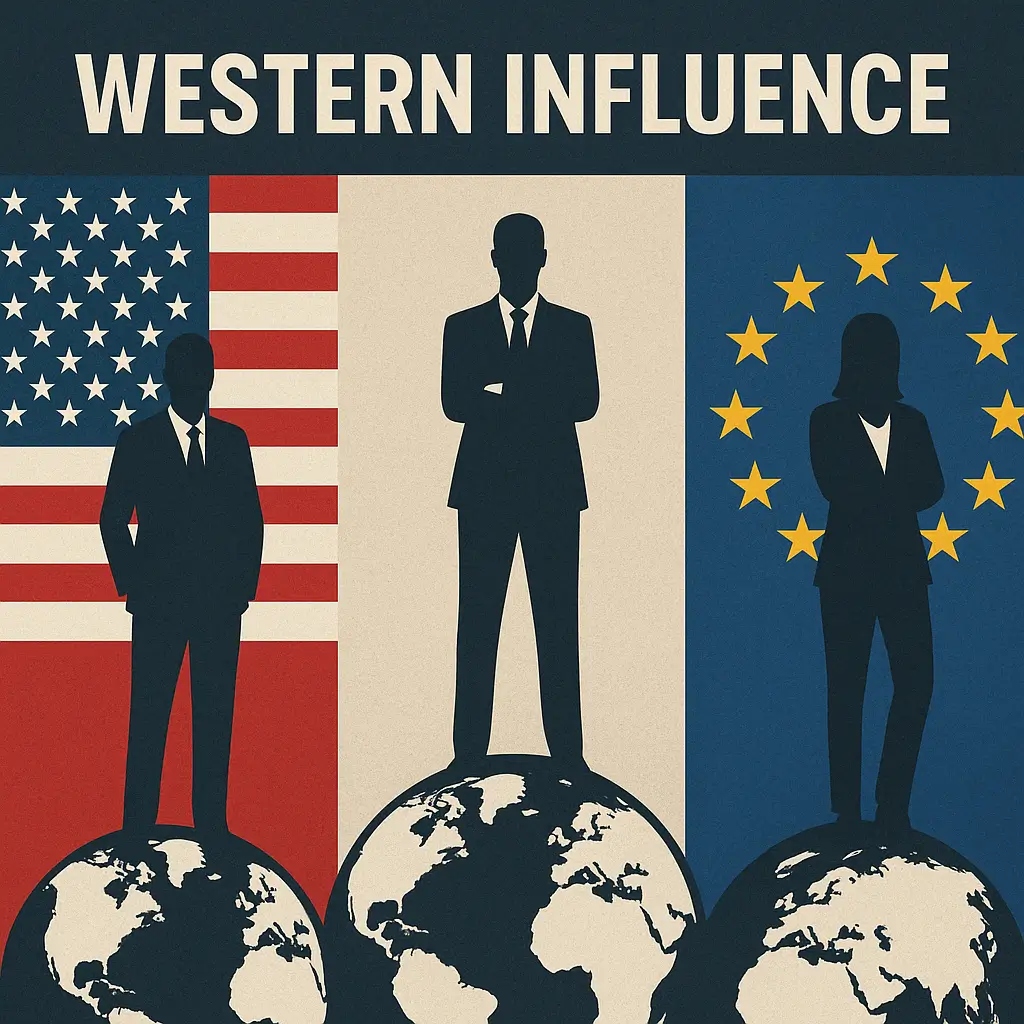A Challenge for Global Wealth Managers
Imagine an independent wealth manager in Zürich, London or Singapore losing a promising client overnight – not because of any wrongdoing by the client, but due to a database flag. This scenario is becoming all too common. Wealth management firms increasingly rely on global watchlists for their Politically Exposed Person (PEP) checks, often powered by Western-based sources.
However, Western influence in PEP checks is a double-edged sword. On one hand, it helps standardise compliance; on the other, it may carry a Western-centric bias that creates headaches for international wealth managers. In an era where emerging markets drive new wealth creation, this bias in compliance systems can impede business growth.
Western Influence in PEP Checks and Western-Centric Bias
Global PEP screening frameworks – from sanction lists to risk databases like World-Check – primarily originate from Western regulatory standards. These tools reflect Western assumptions of risk and reputational harm. This Western-centric bias in PEP screening means that individuals from non-Western regions might be scrutinised under criteria that don’t fully consider local context.
Zum Beispiel, Refinitiv’s World-Check has faced criticism in non-Western regions for including outdated or mischaracterised information. Risk profiles have drawn on biased sources, including politically slanted news outlets. A client might be flagged in a global database simply due to unverified allegations from a foreign blog or media outlet. The result? Banks and wealth managers react cautiously, often rejecting clients out of fear of regulatory risk.
Criticisms of World-Check in Emerging Markets
In emerging markets, professionals are increasingly concerned about World-Check. The database may flag individuals as high-risk PEPs without explaining the context. A local reformist politician might be treated the same as a sanctioned kleptocrat – a difference that local observers understand but the system doesn’t account for.
There’s also growing concern over how authoritarian regimes can exploit global databases. Political dissidents and activists may be falsely accused by their governments, and those charges get swept into Western-designed databases. Without context, banks in London, Zurich or Singapore unknowingly reinforce that persecution.
Compliance teams in these wealth hubs face a dilemma: enforce the database blindly, risk rejecting legitimate clients, or question it and face internal compliance scrutiny. It’s a tricky balancing act.
Difficulties for Western Private Banking Hubs
Difficulties for private banking hubs such as Singapore, London and Schweiz are growing. These hubs must meet strict global compliance standards, but their clients are increasingly from emerging markets – the regions most affected by PEP flags.
1. High False Positives
Many alerts turn out to be harmless. A business executive with a brief advisory role in government might be flagged as high-risk. Sifting through these alerts requires time and resources, especially when onboarding clients from high-growth regions.
2. Reputation vs. Revenue
Firms in Switzerland, London and Singapore must protect their reputations while staying competitive. Turning away too many clients could push business to less-regulated jurisdictions. However, ignoring compliance risks can trigger penalties and reputational fallout.
3. Cultural and Political Nuance
PEP databases often miss nuance. Relationship Managers and compliance officers in these hubs must do extra research to fill the gaps. Without this effort, the firm risks over-screening or missing genuine red flags.
Emerging Wealth: Why the Western World Generates Fewer Newly Rich
Die Western world generates fewer new rich than it once did. Slower economic growth and demographic stagnation mean that most new millionaires are now coming from Asia, the Middle East, and Africa.
Private banks are increasingly working with first-generation wealthy clients from countries where politics and business are closely intertwined. These clients are more likely to trigger PEP flags, even if their wealth is legitimate and compliant. If compliance teams fail to evolve, they risk losing sight of the future of the wealth industry.
The Need for Nuanced Compliance in International Wealth Management
A more visionary, risk-based approach to compliance is no longer optional – it’s essential. Here’s what it looks like:
- Enhanced Due Diligence: Go beyond database hits. Use professional research to determine the validity and context of any risk flags.
- Contextual Risk Assessment: Not all PEPs pose the same risk. Differentiate based on role, geography, and local governance standards.
- Diversify Data Sources: Combine World-Check with local databases and regional news to gain a well-rounded view.
- Transparency & Appeals: Allow clients to clarify or contest a listing. Open dialogue builds trust and prevents reputational harm.
Compliance must evolve from a rigid checklist to a thoughtful, active-risk discipline. This is especially vital for wealth hubs navigating between Western rules and non-Western clients.
When Risk Systems Reflect Politics: Three Real Cases
Although World-Check is marketed as a neutral compliance tool, several cases demonstrate how its listings can reflect Western-aligned political narratives more than objective financial risk. Here are three examples:
1. Majed al-Zeer – Rights Advocate
Al-Zeer, a UK-based activist, was wrongly flagged as a terrorist in World-Check due to an unverified claim. The listing resulted in account closures and reputational damage. He sued and won a settlement from Refinitiv, exposing how Western systems amplified an allied state’s political accusations without due diligence.
2. Mohamed Aboutrika – Football Legend
One of Africa’s most celebrated athletes, Aboutrika was placed on Egypt’s terrorism list for supporting a now-banned political party. World-Check mirrored this label, despite no conviction or evidence. Egyptian courts later overturned the decision. His case illustrates how Western risk assessment tools can inadvertently reinforce authoritarian narratives when left unchecked.
3. Dissidents in Exile – Guilt by Association
Numerous Turkish academics and ex-officials granted asylum in the West found themselves flagged in World-Check as terrorists. These entries were based solely on Turkish government watchlists, which are widely criticised as being politically motivated. Some victims are now suing Refinitiv in US courts, alleging defamation and misuse of power.
These cases remind us that compliance databases are only as neutral as their sources. When data is pulled from regimes or conflicts where politics dominate law, even well-intended risk tools can become instruments of injustice.
Conclusion: What’s Next for Global Wealth Managers?
As the Western world generates fewer newly affluent individuals, the importance of adapting PEP checks to the modern, global client base becomes increasingly undeniable. Western influence in PEP checks will likely persist, but its effects can be mitigated through critical thinking, multi-source validation, and better client engagement.
For wealth professionals, this isn’t just a Compliance issue. It’s a commercial strategy. Success now means applying rules fairly while keeping the door open to legitimate international clients.







